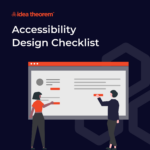UI/UX Design
Driving User Engagement through UI/UX: Strategies for Product Management
07 July. 2023
5 mins read


User engagement is a key metric that determines the success of a product. That’s why a well-designed user interface (UI) and user experience (UX) can significantly impact user engagement by creating intuitive, engaging, and delightful interactions. As a product manager, it is crucial to understand the strategies that drive user engagement through UI/UX.
Additionally, in this blog post, we will delve into diverse approaches that product managers can adopt to optimize user engagement and establish a captivating user experience.

Understanding UI/UX and User Engagement
a) UI
Moreover, User Interface (UI) encompasses the visual elements, layouts, and controls users interact with in a product. A meticulously crafted UI prioritizes aesthetics, usability, and consistency, thereby facilitating seamless navigation and action execution for users.
b) UX
User Experience encompasses a user’s overall experience while interacting with a product. It involves understanding user needs, designing intuitive workflows, and ensuring a seamless and enjoyable experience throughout the user journey.
c) User Engagement
User engagement measures users’ level of interaction and involvement with a product. It encompasses metrics such as time spent, use frequency, and interaction depth. High user engagement indicates that users find value in the product and are likelier to become loyal customers.

Strategies for Driving User Engagement through UI/UX
a) User-Centric Design
Place users at the center of the design process by conducting user research, usability testing, and gathering feedback. Understand their goals, pain points, and preferences to create a UI/UX that addresses their needs effectively. Incorporate user feedback iteratively to refine and improve the product experience.
b) Simplified Onboarding
The onboarding experience sets the tone for user engagement. Design an onboarding process that is intuitive, frictionless, and quickly guides users to the core value of the product. Break down complex tasks into smaller, manageable steps, and provide clear instructions and guidance.
c) Visual Appeal and Consistency
Create a visually appealing UI that aligns with your brand identity and resonates with your target audience. Use consistent design elements, typography, color schemes, and iconography throughout the product to maintain a cohesive and familiar experience. Visual cues and hierarchy should guide users’ attention to important elements and actions.
d) Seamless Navigation and Information Architecture
To enhance user experience, ensure seamless navigation within the product by organizing content logically and offering clear signposts. Utilize intuitive menu structures, breadcrumbs, and search functionality to facilitate quick access to desired information. Additionally, reduce cognitive load by employing clear labels and grouping related information together effectively.
e) Personalization and Customization
Moreover, empower users to personalize their experience by offering customization options. Enable them to adjust settings, preferences, and layouts to tailor the product to their individual needs. This customization enhances the sense of ownership and boosts user engagement by providing a personalized experience.
f) Micro interactions and Feedback
Moreover, integrate subtle microinteractions to offer feedback and elevate user engagement. These microinteractions encompass animations, transitions, tooltips, and notifications, promptly responding to user actions, thereby fostering responsiveness and enriching the overall user experience.
g) Gamification and Rewards
Furthermore, integrate gamification elements to motivate users and increase engagement. Incorporate design challenges, milestones, achievements, and leaderboards to foster a sense of competition, accomplishment, and progress. Additionally, reward users for completing tasks, reaching goals, or performing desired actions to incentivize continued engagement.
h) Continuous Improvement
User engagement is not a one-time effort but a continuous process. Monitor user behavior, analyze metrics, and gather feedback to identify areas of improvement. Regularly release updates and enhancements based on user feedback to demonstrate a commitment to meeting user needs and expectations.

Measuring and Analyzing User Engagement
Product managers must measure and analyze user engagement metrics to effectively drive user engagement through UI/UX strategies. Some common metrics include:
a) Active users
The number of users actively using the product within a specific time frame.
b) Session duration
The average time users spend in a single session.
c) Conversion rate
The percentage of users who complete a desired action or conversion goal.
d) Retention rate
The percentage of users who continue using the product over time.
e) Click-through rate (CTR)
The percentage of users who click on a specific element or call to action.
f) Task completion rate
The percentage of users who successfully complete a specific task or workflow.
g) Heatmaps and user recordings
Visual representations of user interactions, helping to identify areas of high or low engagement.
Conclusion
Furthermore, driving user engagement through UI/UX is imperative for product success in today’s competitive landscape. By embracing user-centric design, simplifying onboarding, emphasizing visual appeal and consistency, ensuring seamless navigation, offering personalization, integrating microinteractions and gamification, and continually enhancing the product, product managers can craft a compelling user experience that cultivates elevated levels of engagement.
Additionally, measuring and analyzing user engagement metrics allow for data-driven decision-making and ongoing optimization. By prioritizing UI/UX strategies, product managers can effectively engage users, drive satisfaction, and achieve long-term success.
—
What’s Next
Idea Theorem is an award-winning design & development agency based in North America. Through our empathy-driven approach, we have crafted digital products that have positively impacted over 10 million users. Our mission is to shape the digital future by delivering exceptional experiences. Contact Us if you have any questions; we will gladly help you.





